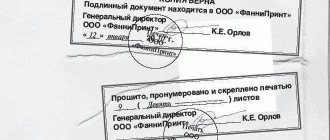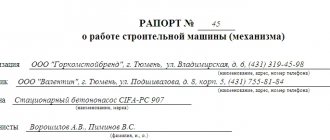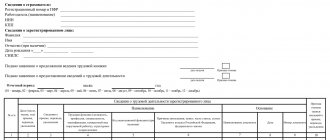Features of the crime
Articles 94 and 101 of the Labor Code of the Russian Federation, employees are required to comply with ethical standards of communication. The Constitution of the Russian Federation prohibits insults based on religion, nationality and other characteristics of a person.
For ordinary insult, administrative liability is provided under Article 5.61 of the Code of Administrative Offences, and for insulting a representative of the authorities and law enforcement agencies - criminal punishment.
Regardless of the status of the offender, these legal norms apply to him. But disciplinary measures can additionally be applied to officials.
Employer Opportunities
As is known, an employer can impose certain disciplinary penalties on employees in the event that they ignore or do not properly perform their job functions.
The Labor Code stipulates all three sanctions (Article 192):
- comment;
- rebuke;
- dismissal for certain reasons.
There may be others, but this is more typical of public sector organizations. Therefore, ordinary individual entrepreneurs and commercial firms have to deal only with those listed.
The corresponding job responsibilities of a person must be specified in:
- labor contract;
- job description;
- or in the internal rules of the company.
It is also important that the employee personally attest to his authority.
Recently, companies have begun to include in the texts of employment contracts and job descriptions something like the following phrase:
| The employee is obliged to treat clients and employees of Guru LLC politely and correctly, and not to allow rude treatment of the client . |
Accordingly, in practice, recently the question has increasingly arisen: can politeness and similar qualities be attributed specifically to the duties of an employee? After all, many people have already been fired for rude treatment of clients . The position in these cases was as follows: the employee violated not just the rules of etiquette (disciplinary punishment cannot be imposed for this), but his job duties.
What is considered harassment in the workplace?
Personal insult in the workplace is expressed in humiliation of his honor and dignity, which negatively affects a person’s career. In practice, insult may include:
- Obscene language.
- Inappropriate gestures.
- Distributing information on the Internet or sending it by email.
Such online publications are classified as slander and humiliation.
Real-life situations of workplace harassment often require expert judgment because the abuse is not always clear-cut.
Swearing at a specific person
If obscene language is expressed not in a public place, but in relation to a specific person, then the citizen can be held accountable under the provisions of Art. 5.61 Code of Administrative Offences. Insult becomes the object of prosecution according to the norms of administrative law, since the citizen’s right to honor and dignity is the object of protection of the Constitution. According to Part 1 of Art. 21 of the Constitution, nothing can become a basis for derogation of dignity. According to Part 1 of Art. 23 of the Constitution, every Russian is entitled to the protection of honor and good name.
Until 2011, insult to personality was a criminal offense, but then it was decriminalized (we are talking about Article 130 of the Criminal Code (CC)). The special elements of this crime remain in Art. 148, 297, 319, 336 of the Criminal Code. But they apply to a limited circle of citizens against whom the crime was committed (for example, against a judge or jury), to limited subjects of the offense (for example, against a military serviceman) and limited circumstances of the commission of the crime (for example, the victim was performing his official duties at that moment ).
So, according to the norms of Part 1 of Art. 5.61 of the Code of Administrative Offenses, insulting another person is a humiliation of his honor and dignity, expressed in an indecent form . It threatens the violator with an administrative fine in the amount of 1000-3000 rubles. If the illegal act was committed by an official, then the fine is 10-30 thousand rubles, for a legal entity - 50-100 thousand rubles.
Part 2 art. 5.61 of the Code of Administrative Offenses represents a qualified administrative offense . The qualifying feature is the publicity of offensive actions that help to humiliate the victim in front of other persons. The fine under this article is at least 3000-5000 rubles. For officials, fines increase to 30-50 thousand rubles, for legal entities - 100-500 thousand rubles.
Another qualified team, according to Part 3 of Art. 5.61 of the Code of Administrative Offenses – failure to take measures to prevent insults in a public format . In contrast to the above-mentioned elements of the offense, the specified legal norm refers only to special subjects: officials and legal entities. If measures are not taken to prevent insult in a work or in the media, officials will have to pay a fine of 10-30 thousand rubles, legal entities - 30-50 thousand rubles.
The subjects who must prevent or suppress illegal acts and insults can be editors of newspapers and magazines, editors on radio or television.
In addition to being brought to administrative liability, a person who has insulted another person, under the Civil Code, faces the possibility of recovering moral damages. Such compensation is paid in cash, and the amount is determined taking into account the nature of physical or moral suffering.
Concept and legal characteristics
Article 5.61 of the Code of Administrative Offenses punishes humiliation of dignity in general, without division into those committed in the workplace or outside it. Circumstances that indicate humiliation are considered:
- Intentionally offensive statements that affect the dignity and honor of a person.
- Actions and words that have an obscene form.
- Presence of a specific addressee.
If the abuse is not directed at a specific person, then it will not be possible to prosecute for it under this article.
Judicial practice under the article for insult in the workplace includes the use of:
- Expressions using obscenities.
- Comparisons with animals and plants.
- Unwanted touching.
- Obscene gestures.
- Damaging or tearing off the victim's clothing.
Insulting superior employees is punished in the same way as inferior ones.
Article 5.61 of the Code of Administrative Offenses of the Russian Federation
Within the framework of this rule of law, three elements of crime are defined:
- The general elements of the crime involve verbal humiliation of a person. The fact of the statement must be proven with the help of witness testimony, video or audio recording.
- Public insult. This crime arises when insults are expressed in the presence of two or more witnesses or when they are published in the media.
- A passive crime consists of the boss’s inaction when insulting his employees.
Without evidence, it is impossible to bring the offender to justice. Evidence is considered to be testimony or documents that record the fact of the statement and its content.
What is the offense of using obscene language in a public place?
Swearing in itself is not prohibited and is not an offense. But this is relevant as long as the swearing does not affect the rights of other persons. In the latter case, swearing becomes an administrative offense. The norms of the Code of Administrative Violations (CAO) prosecute swearing in a public place and swearing that is used to insult a person.
A violation is swearing not only verbally, but also in the media, since in this case it can violate the rights and legitimate interests of citizens and a wide audience of readers.
Responsibility for swearing comes on the basis of the following norms of the administrative code:
- Article 20.1. Petty hooliganism.
- Article 5.61. Insult.
Punishment for swearing includes a fine of up to 5 thousand rubles. Compensation for harm is made in monetary form, and its amount is determined by the court depending on the degree of moral suffering caused, as well as the degree of guilt of the offender.
Types of insult
The legislation distinguishes between two types of personal insults – general and public. In practice, it is worth noting additional aspects:
- Violations by colleagues.
- Insults committed by management.
- Humiliating statements on behalf of strangers (clients, customers, etc.).
In some cases, obscene words are not used when insulting. The statement is in the format of a literary speech, but at the same time it harms the reputation and dignity of a person. In this case, he can also be held accountable.
Crimes against honor and dignity
Some bosses try their best to kick undesirable employees out of their workplace.
Moreover, often their actions and words may be aimed not at the quality of work duties performed, but at the personal qualities of the employee. Any unpleasant statements and actions that can be regarded as a violation of official discipline and personal space of a citizen are crimes against the honor and dignity of a person. These unlawful acts are punishable under criminal law.
First of all, the employee must file a complaint with the prosecutor, who, based on the results of reviewing the application and all attached documents, will decide to initiate a case.
After this, law enforcement officers (as a rule, a district police officer, labor inspectorate employees, an assistant prosecutor) take actions aimed at establishing the existence of negative statements regarding the injured party. Such activities are carried out by individually interviewing each colleague of the victim.
According to the law, the total time for conducting such an investigation should not exceed 30 days. All collected materials are sent to the court, where the case is considered within 2 weeks (maximum duration under heavy workload).
Crimes against the honor and dignity of a citizen entail administrative or criminal liability (depending on the severity of the offenses).
Rules on this issue
The inadmissibility of violating human rights and humiliating his honor and dignity is specified in the following legislative acts:
- In Article 21 of the Constitution of the Russian Federation.
- The Labor Code, which states that everyone is required to follow ethical standards.
- The Criminal Code of the Russian Federation, if we are talking about insulting a government official.
- Article 5.61 of the Code of Administrative Offenses of the Russian Federation.
The Code of Administrative Offenses is used most often when the dignity of one or more people is humiliated.
How to write a reprimand for using obscene language at work
In other cases, issues are resolved on the basis of the Administrative Code. In accordance with Article 5.61 of the Code of Administrative Offenses of the Russian Federation, the concept of insult is defined. Service relations between employees are not considered in this case. The norm states that insult is associated with the desire to humiliate the honor and dignity of another person.
A peculiarity is the denunciation of actions in indecent expression. At the same time, the offender does not worry or suffer from the unethicality of his words or actions. The offense involves the performer who insults and the addressee who receives swearing in his direction.
To understand the essence, it is necessary to consider the situation. A client contacted the organization and wanted to express complaints about the work.
He spoke to the available manager. After considering the issue, a solution to the current situation was not immediately found.
When scolding a client without addressing him, his actions cannot be called insults.
Procedure
To bring the offender to justice and receive compensation for moral damage from him, you need to:
- Collect evidence. They are considered to be witness testimony, audio, video recordings of conversations (including from CCTV cameras), as well as screenshots of publications and correspondence on social networks and Internet sites.
- Draw up a complaint or memo addressed to management, describing the essence of what happened and indicating the details of the offender.
- Contact the prosecutor's office with the collected evidence, submit a report to your superiors or the trade union, and also file a claim for compensation for moral damage in court.
To contact the trade union and management, a memo is enough, but you will have to file a claim in court, drawn up in accordance with the requirements of the Code of Civil Procedure of the Russian Federation.
Have a question for a lawyer? Ask now, call and get a free consultation from leading lawyers in your city. We will answer your questions quickly and try to help with your specific case.
Telephone in Moscow and the Moscow region: +7
Phone in St. Petersburg and Leningrad region: +7
Free hotline throughout Russia: 8 (800) 600-25-34
How to file a complaint?
The complaint is drawn up in free form, indicating standard information about the applicant, but in addition you need to indicate:
- The exact time and date of the insult in the workplace. If the action was repeated several times, it is worth indicating each episode.
- Details of the offender.
- Fully describe the essence of what was said, conveying the words of the offender as accurately as possible.
- Ask for him to be held accountable.
When filing a claim in court, you need to evaluate the actions and words of the defendant, giving arguments confirming that they were offensive.
Where should I submit it?
Most large organizations enforce ethical requirements. Therefore, you can always file a complaint with management due to insults from other employees.
A statement of claim is filed with the court if one wishes to recover compensation for moral damage. Such cases are considered within the framework of the Civil Code of the Russian Federation.
To be held accountable under the Code of Administrative Offenses of the Russian Federation, you should submit an application to the prosecutor's office. It must be taken into account that without evidence, complaints will be refused. Therefore, if the fact of insult is not documented, it is necessary to attract witnesses who can prove what happened.
Sample
The claim to the court is drawn up in free form; it is enough to comply with the basic requirements for filing statements of claim. The complaint in the form of a memorandum must correspond to the sample below.
Punishment for harassment in the workplace
Depending on the type of insult, the position of the victim and the internal documents of the organization, different types of punishment may be applied:
Disciplinary liability is applied only if the organization has a code of ethics, which employees are introduced to upon signature. Verbal notices of such rules have no effect.
The punishment must always be proportionate to the crime, otherwise it will be challenged in court.
Civil responsibility
Liability under the Civil Code may arise even in the absence of obscene expressions in the words of the offender. In this case, the following liability applies:
- Personal or public apology.
- Compensation for material and moral damage.
- Compensation for moral damage should not exceed 50,000 rubles.
Civil liability arises on the basis of a court decision.
Administrative responsibility
If you insult a person in the workplace in an obscene manner, the perpetrator will be held accountable under the Code of Administrative Offenses of the Russian Federation. The following are used as punishment:
- A fine of 1-50 thousand rubles.
- Administrative arrest for up to 15 days.
- Both sanctions at the same time.
The combination of a fine and arrest is rarely used; usually one type of punishment is chosen.
Criminal penalty
The classification of insult in the workplace under the article of the Criminal Code of the Russian Federation occurs when what is said contains a threat to human life or health. For this they can:
- Arrest (including sentence to house arrest) for a year.
- Imprisoned for 3-7 years.
The punishment must correspond to the gravity of the crime. In addition to criminal liability, the victim has the right to demand compensation for moral damage.
Article for obscene language
Public utterance of any obscene language will be equated to petty hooliganism, the implementation of liability for which is provided for in Article 20.1 of the Code on the Commission of Administrative Offenses by Citizens of the Russian Federation. A sign of publicity means in this article the utterance of obscene language in the direct presence of people, in some public place, for example on the street, therefore it is in such a situation that an ordinary violator will demonstrate to a much greater extent his obvious disrespect for public order. The main point in qualifying an offense as petty hooliganism will be the presence of intent by the given citizen to violate public order and express clear disrespect for public order.
Part 1 art. 20.1 of the Code of Administrative Offenses of the Russian Federation will give us the following definition of petty hooliganism:
- the use of obscene language is regarded as an insult to a person and humiliation, which is expressed in an indecent form, if there is no doubt about who it was intended for.
- committing a violation of public order, expressing clear disrespect for society, which is accompanied by obscene language in public places;
- offensive verbal harassment of citizens or destruction, as well as damage to someone else’s property, and will entail the imposition of a fine in the amount of 500 to 1,000 rubles or the imposition of administrative arrest for a period of up to 15 days;
- Carrying out actions involving active disobedience to the lawful demand of a law enforcement officer or other person who performs duties to protect public order or suppress a violation of public order will entail a fine of 1,000 to a maximum of 2,500 rubles or administrative arrest for up to 15 days
How can you protect yourself from insults?
To protect your honor and dignity, it is important not to break the law. You cannot respond to an insult with the same obscene insult. It is necessary to act correctly and neutrally, within the framework of the law.
The collection of evidence is based on recording all insults using available technical means. This will be the basis for filing a complaint or legal action.
After recording the fact of insult in the workplace and collecting evidence, you need to notify the organization’s management about this in writing.
In addition to filing a complaint (memo), you can simultaneously go to court for compensation for moral damage.
If the offender is a manager, then you must complain immediately to the Labor Inspectorate or the Prosecutor's Office.
Measures of influence on the offender
Based on the above, it becomes clear that there are several measures of influence:
- Memo to management.
- Application to regulatory organizations.
- Lawsuit.
Without evidence, it will not be possible to attract the offender using these measures. Therefore, it is necessary to carefully collect all evidence of what happened.
The memorandum, complaint or claim must be copied and a copy saved in order to use it if necessary to further protect your rights in higher authorities.
Correct picture
Can swearing make you look stupid and unprofessional? Many employers think their employees shouldn't do this. A survey among employers showed that for 81% of them, people who use obscene language look unprofessional. Most people think it's a sign of immaturity, lack of control, and it also makes the employee look stupid.
You may ask what harm swearing does. But is there any benefit from it? Swearing may make you feel better, but it doesn't earn you respect, it shows weakness in your character, it doesn't resolve disagreements, and it certainly doesn't demonstrate a high level of intelligence.
Good policeman: he gave the girl his daughter’s bicycle in exchange for the stolen one
Surround yourself with things that are dear to you: 5 ways to make your home healing
Only for those with a car. A restaurant in Mexico refused to sell food to a passerby.
Again, there are plenty of people in leadership positions who use profanity. It's not just celebrities or CEOs of big companies. What can we say, even US President Barack Obama once said that he was trying to figure out “whose ass to kick” after the oil spill in the Gulf of Mexico in 2010! It becomes clear that swearing cannot ruin or interrupt your career. One study even found that using swear words "sensibly" can make you more persuasive. Maybe for some people it is a kind of leadership tool.








